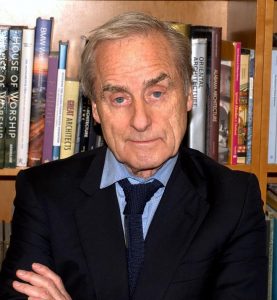Sir Harold Evans: a staunch advocate for free speech
[vc_row][vc_column][vc_column_text]

Index patron and friend Sir Harold Evans, photo; David Shankbone, CC BY 3.0
On Wednesday evening a legend passed away. Sir Harold Evans.
Harry wasn’t just a proper newspaper man, he was the staunchest of advocates for free speech both in the UK and across the world. But, most importantly, at least for us, he was part of the Index family, as a long-standing patron, friend and supporter.
Many people have written their personal stories of Harry in the last 48 hours, their experiences of a great man who embodied the best of journalism. A journalist who was fearless in challenging the establishment and shining a light on some of the most appalling scandals of his age, re-inventing investigative journalism, ensuring that his work changed minds and the law. A publisher who changed the political landscape.
Very few of us will leave such an awe-inspiring legacy.
Most importantly Harry was brave and was prepared to use his position to not only help others by exposing injustice but by ensuring that the voice of the victims was heard – most notably in his work with survivors of the thalidomide scandal.
From an Index perspective, Harry didn’t just seek to protect free speech, he relished using it. He was the first editor in British history to ignore a government D-notice, when he believed that the government were seeking not to protect national security but rather their own reputation. It’s because of him that we know the name of Kim Philby, the traitor who acted as a double agent. He stood up to the government and exposed a national scandal. In this, and on so many other issues, he published without fear or favour.
You can read Harry on the pages of Index writing about the censorship of photographs, anti-Semitism in the Middle East and forgotten free speech heroes. We were honoured to have his support and we are so saddened by his loss.
Our thoughts and prayers are with Harry’s family, friends and colleagues – may his memory be a blessing for all of them.[/vc_column_text][three_column_post title=”You might also like to read” category_id=”13527″][/vc_column][/vc_row]
